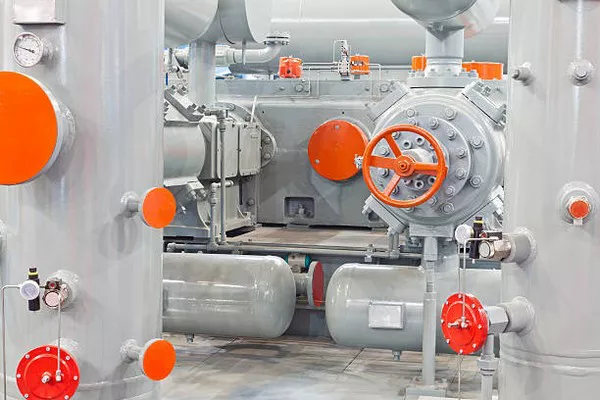A central air compressor is a crucial component of a central air conditioning system, responsible for pressurizing and distributing refrigerant throughout the system to facilitate the cooling process. If you’re considering installing or replacing a central air compressor, it’s important to understand the costs associated with this essential component. The price of a central air compressor can vary significantly depending on various factors and considerations. In this article, we will delve into these factors to help you gain a clearer understanding of how much a central air compressor may cost.
Compressor Type
The type of compressor you choose has a significant impact on the cost. There are two primary types of compressors used in central air conditioning systems: reciprocating compressors and scroll compressors.
Reciprocating Compressors: These are the traditional compressors with moving pistons and cylinders. They tend to be more affordable but may be less energy-efficient and noisier compared to scroll compressors.
Scroll Compressors: Scroll compressors use a spiral-shaped mechanism to compress refrigerant. They are known for their quieter operation and higher energy efficiency but come at a slightly higher cost.
Your choice of compressor type should align with your budget and your desire for energy efficiency and noise reduction.
Compressor Size
The size of the compressor is determined by the cooling capacity required for your home. A larger compressor is needed for larger homes with greater cooling needs. However, an oversized compressor can lead to inefficiencies and increased energy consumption.
To determine the right compressor size, it’s essential to conduct a load calculation, which takes into account factors like the size of your home, insulation, and local climate conditions. An HVAC professional can perform this calculation to ensure you get the right-sized compressor for your needs.
Efficiency Rating
The efficiency rating of a central air compressor is often expressed in terms of its Seasonal Energy Efficiency Ratio (SEER). The higher the SEER rating, the more efficient the compressor is, which can lead to lower long-term operational costs.
While high-efficiency compressors may come with a higher upfront cost, they can save you money on energy bills over time. Investing in a compressor with a higher SEER rating is a wise decision if you’re looking for long-term energy savings and reduced environmental impact.
Brand and Quality
The brand and quality of the central air compressor also play a significant role in determining its cost. Well-established and reputable brands tend to offer more reliable and durable compressors, but they may come at a premium price.
When evaluating different brands, consider factors such as warranty coverage, customer reviews, and the brand’s reputation for quality and reliability. While it may be tempting to opt for a cheaper option, investing in a high-quality compressor can pay off in terms of longevity and performance.
Installation Costs
The installation of a central air compressor is a critical part of the overall cost. Installation costs can vary depending on factors like the complexity of the installation, local labor rates, and any additional work required to accommodate the new compressor.
It’s essential to hire a licensed and experienced HVAC contractor for the installation to ensure it is done correctly. While you may incur upfront installation costs, professional installation can prevent future problems and ensure optimal performance.
Regional Factors
The cost of a central air compressor can also be influenced by your geographic location. Prices can vary from one region to another due to factors such as local demand, climate conditions, and labor costs. Before making a decision, it’s a good idea to obtain multiple quotes from HVAC contractors in your area to get a better understanding of the regional pricing trends.
Additional Features and Accessories
Central air compressors often come with optional features and accessories that can add to the overall cost. Some of these features include:
Variable-speed technology: Compressors with variable-speed technology can adjust their output to match the cooling needs, increasing energy efficiency but also adding to the initial cost.
Noise-reduction features: Quieter compressors may have additional noise-reduction features, which can increase the price.
Advanced controls: Smart thermostats and advanced control systems can enhance the overall efficiency of your HVAC system but may come with an extra cost.
Consider whether these additional features are essential for your comfort and energy savings goals when determining your budget.
Maintenance and Operating Costs
In addition to the upfront cost of the central air compressor, it’s important to factor in ongoing maintenance and operating costs. Regular maintenance, such as annual inspections and filter replacements, is crucial for the longevity and efficiency of the compressor. Operating costs, including electricity consumption, also contribute to the overall cost of running your central air conditioning system.
Conclusion
The cost of a central air compressor can vary widely depending on factors such as compressor type, size, efficiency rating, brand, installation costs, regional factors, additional features, and ongoing maintenance and operating costs. While it’s tempting to focus solely on the initial purchase price, it’s essential to consider the long-term cost-effectiveness of your investment.
Investing in a high-quality, energy-efficient central air compressor may result in lower energy bills and fewer maintenance expenses over time, making it a wise choice for homeowners looking to enhance comfort and energy savings. To make an informed decision, consult with HVAC professionals, obtain multiple quotes, and prioritize factors that align with your budget and long-term goals for your home’s cooling system.

